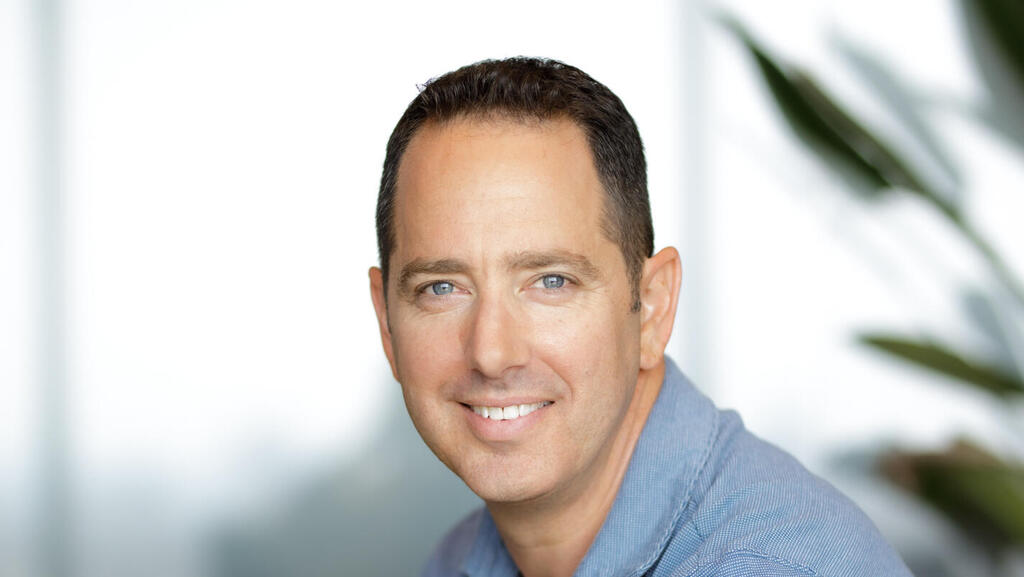
2025 VC Survey
10D calls for government action: Boost talent, infrastructure, and local investment
Rotem Eldar, Co-founder and Managing Partner of 10D, joined CTech for its 2025 VC Survey to share what he believes the Israeli government should do to tackle some of Israel’s ongoing challenges.
For the last few weeks, CTech has been publishing its 2025 VC Survey, asking prominent investors in the Israeli tech space some of the most pressing questions about how the previous year has impacted the industry and what the next year is expected to bring.
Today, CTech is joined by Rotem Eldar, Co-founder and Managing Partner at 10D, who has outlined some of the things he believes the Israeli government should do to tackle the country’s ongoing challenges.
“First, [resolve] the travel disruptions to enable startups to operate globally and attract investors more easily, reinforcing the high-tech ecosystem and accelerating growth,” he told CTech. “Second, investing in talent development—particularly in emerging fields like AI, robotics, and computational biology—would help sustain Israel’s competitive edge. We must develop the next generation of scientists and tech leaders and make sure Israel continues to be at the forefront of technology for years to come.”
The third and final proposal related to infrastructure and innovation to help fund research hubs, help grow startups, and incentivize institutional investors. “Currently the high-tech ecosystem relies heavily on foreign investments and as an important pilar of our economy we must thrive for self-reliance on this front as well,” he added.
You can catch the entire interview below.
Fund ID
Name of fund/funds: 10D
Total sum of the fund: $350M
Partners: Rotem Eldar, Yahal Zilka, Itay Rand, Adi Dangot Zukovsky,Alon Kantor
Notable/select portfolio companies (active): Exodigo, Obligo, Onestep, Quantum Source, WEKA, Augury, Drivenets
Notable exits: Seebo
2024 is over. How can you summarize it in terms of the Israeli high-tech industry?
2024 has been a year of resilience and reinvention for Israeli high-tech. Despite regional conflict and the lingering effects of a global economic slowdown, Israel’s innovation ecosystem continued to thrive. Startups in the country raised more capital than last year and are on par with pre-pandemic funding levels, a testament to the sector’s ability to adapt under pressure. We saw five significant exits exceeding $1 billion and a notable influx of foreign capital, especially in sectors like Cybersecurity, Healthcare, and Artificial Intelligence. Additionally, 2024 marked the rise of defensetech as a significant growth sector, driven by increased global demand for dual-use technologies and by Israel’s unique expertise in leveraging military innovation for commercial applications. These developments underscore the enduring investor confidence in Israel's ability to produce category leaders with global impact.
Looking ahead to 2025 - What challenges and opportunities await the Israeli high-tech sector in the coming year, and how are you, as investors, preparing for them?
Over the past 15 years or so, software “has been eating the world”, as Marc Andreessen stated. However, we are entering a new era in which “GenAI is eating software,” fundamentally reshaping the tech landscape. GenAI has made software development more accessible, lowering entry barriers, even for complex products, and challenging SaaS startups in maintaining a defensible competitive advantage. To sustain an edge and drive innovation in this new reality, we expect to see more focus on deep tech, including semiconductors, sensors and robotics, that provides a higher barrier to entry for competitors.
We also expect to see more startups leveraging proprietary data to develop and train unique and hard-to-replicate models. An example can be blending LLMs with experimental data obtained in a wet lab for developing new computational biology models. For those sticking to software solutions - strong domain expertise, unique access to design partners and customers, exceptional product definition and very high execution capabilities are now essential for winning over competitors.
What are the three most important things the Israeli government should do today to accelerate the high-tech engine in the coming year?
First, resolving the travel disruptions to enable startups to operate globally and attract investors more easily, reinforcing the high-tech ecosystem and accelerating growth.
Second, investing in talent development—particularly in emerging fields like AI, robotics, and computational biology—would help sustain Israel’s competitive edge. We must develop the next generation of scientists and tech leaders and make sure Israel continues to be at the forefront of technology for years to come.
Finally, strengthening infrastructure for innovation, including funding programs and support for research hubs, would empower startups to scale and address global challenges. In addition, I believe that the Israeli government should incentivize institutional investors, such as pension funds, to invest in startups and venture capital. Currently the high-tech ecosystem relies heavily on foreign investments and as an important pilar of our economy we must thrive for self-reliance on this front as well.
Are there new sectors you see as relevant? Are there any fields you anticipate will weaken significantly in the coming year?
Emerging sectors include applications of generative AI in non-traditional fields like industrial tech and healthcare, robotics, and obviously defensetech. These areas are ripe for innovation and are well-suited to Israel’s deep tech capabilities. On the other hand, traditional SaaS companies may face increasing commoditization and struggle to maintain defensible advantages, as the market moves toward more transformative and complex solutions.
Is Israel missing out on the AI revolution in the global arms race? If not, what should the local industry focus on to join the global race?
Israel is far from missing out on the AI revolution; in fact, it’s at the forefront of integrating AI into real-world applications. However, the local industry must focus on leveraging AI to create unique value in areas where Israel already has a competitive advantage, such as defense, robotics, and data-driven healthcare. We are also playing a key role in bringing down the cost of AI and supporting it scale as innovation around compute acceleration, smart data management, cost optimization, and fast networking is coming out of Israel. By aligning AI with deep tech innovations, Israeli startups can continue to lead in this global race.
Could the global IPO drought end in the coming year?
The IPO market could see a gradual recovery in 2025 if interest rates stabilize and macroeconomic uncertainties subside. However, in the coming wave of IPOs we believe the thresholds will be higher with more focus on unit economics and profitability as well as higher revenue numbers than in the past. While the timing remains uncertain, the steady M&A activity and continued mega-round funding indicate that investor interest in high-quality tech companies is strong. For Israel, this could pave the way for high-profile IPOs as soon as mid-2025.
From an investor's perspective: will the coming year be better for early-stage startups or more mature companies?
2025 is likely to favor early-stage startups, especially those in emerging sectors with strong value propositions and innovative approaches. Leading global early-stage funds are recognizing the potential in seed-stage investments in Israel, re-opening offices, and putting boots on the ground, channeling significant capital into early-stage opportunities in Israel. Mature companies may face greater challenges, particularly if they need to justify valuations from previous years or adapt to shifting market dynamics. The environment rewards agility and a focus on creating lasting impact.
Did you raise fund money in 2024 for an existing fund or a new one? What are your expectations regarding this matter for 2025?
We are currently actively investing from our second fund, which focuses on transformative technologies and deep tech. We will continue to invest from this fund during 2025.
How many investments did you make in 2024, and how does it compare to previous years?
In 2024 we continued making initial investments at a steady pace similar to previous years. We invested in transformative technologies across several verticals while also participating in follow-on rounds for nearly half of our portfolio companies. We expect to keep a similar pace for 2025.
Provide an example of an intriguing investment you made in 2024. What sets this company apart, or what is distinctive about its sector?
One of our most intriguing investments this year was in bananaz, a company transforming design change management for the mechanical engineering. Their unique AI-powered platform uses advanced computer vision to automate complex tasks such as design validation, error detection, and change tracking in technical drawings and 3D CAD models. This drastically reduces manual effort and costly mistakes, cutting design review times by up to 90%. The manufacturing sector, where inefficiencies can erode up to 20% of revenues, is primed for disruption, and bananaz is perfectly positioned to lead this shift, enabling companies to streamline workflows, reduce risks, and stay competitive in a rapidly evolving market.
Two notable companies that you think will thrive in 2025.
Company Name: Euno
Sector + description of the product/service: Enterprise Data Stack. Euno is a metadata intelligence platform that accelerates successful AI adoption by enabling natural language analytics tools to deliver a reliable, self-serve experience for business stakeholders. In order for AI tools to produce reliable results, consistent data interpretation is essential. Euno provides the technology and framework to continuously manage BI and AI-certified data assets, laying a consistent foundation for successful AI adoption.
Investment amount + total: $6.25M
Founding Year: 2023
Reasoning why this is their year: In 2023, when 10D first partnered with Euno, organizations were just beginning to recognize the need for consistent, governed data to enable scalable AI adoption. Euno identified this challenge early, pioneering a platform that addresses inconsistent and conflicting data, which undermine trust in BI reports and hinder AI implementation.
Company Name: bananaz
Sector + description of the product/service: bananaz operates in the engineering and manufacturing sector, delivering an AI-powered platform that is designed to revolutionize design change management. By automating drawing comparisons, detecting errors, and optimizing workflows, bananaz helps R&D and mechanical engineering teams prevent costly mistakes, streamline processes, and accelerate product launches.
Investment amount + total: $2.9M, $5.3M
Founding Year: 2023
Reasoning why this is their year: 2025 is the year where bananaz’s vision is set to become an industry standard. Since 10D’s early investment, we’ve watched the company tackle one of the most persistent challenges in mechanical engineering and manufacturing: the costly bottlenecks caused by design errors and inefficient design change management. With bananaz exiting stealth mode and launching its platform to market, the timing couldn’t be better for this game-changing solution.













